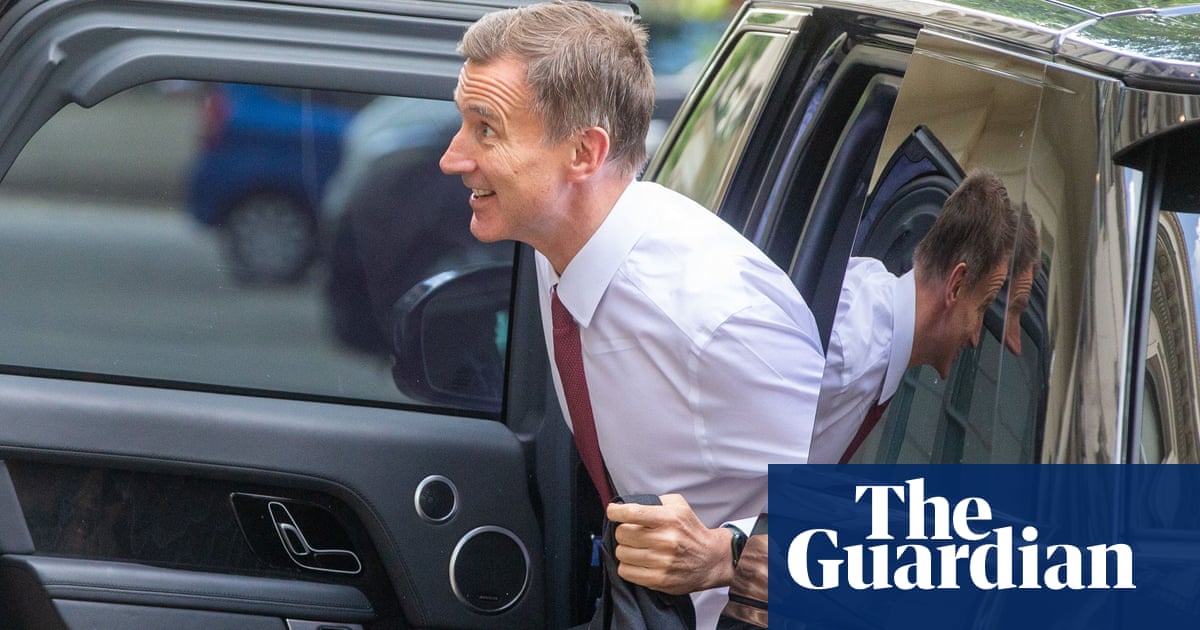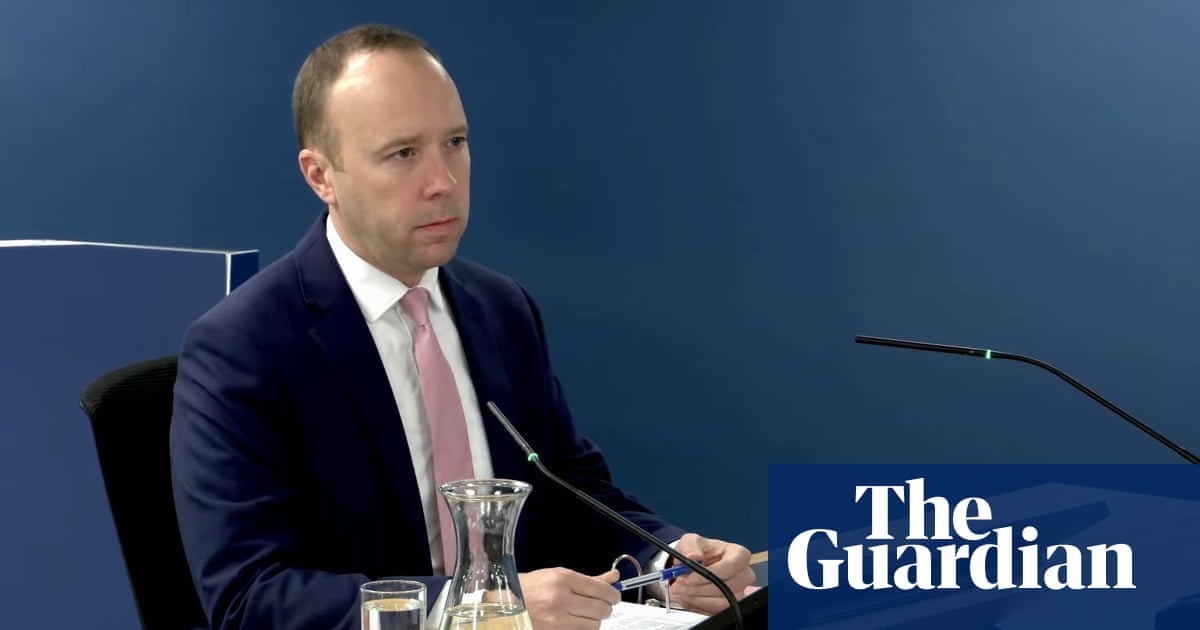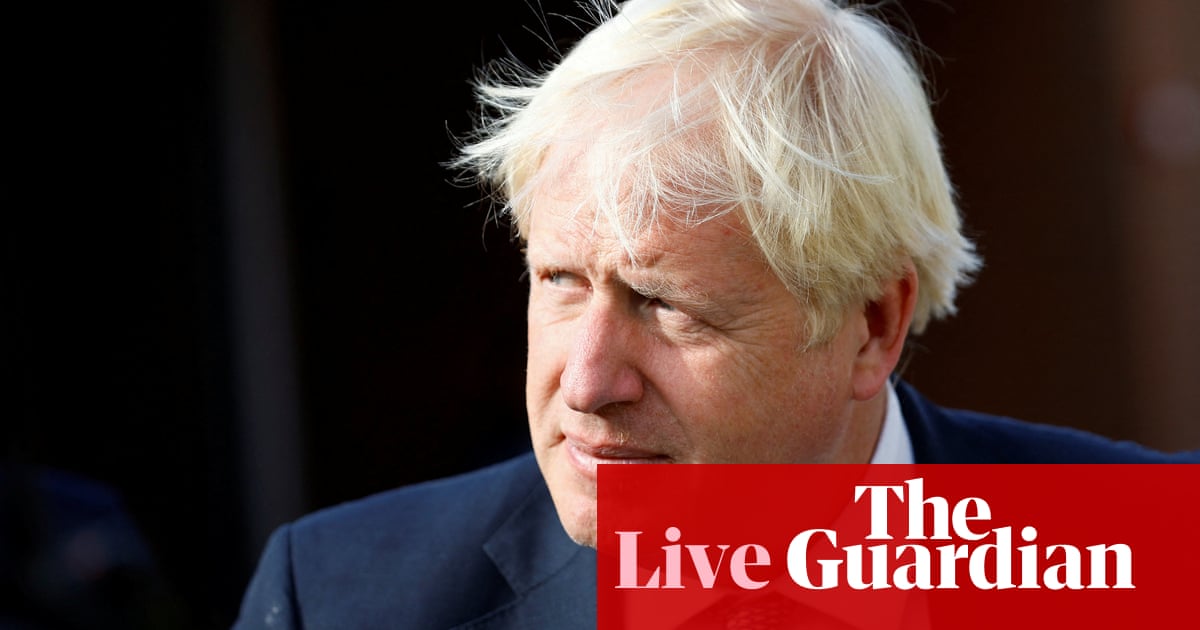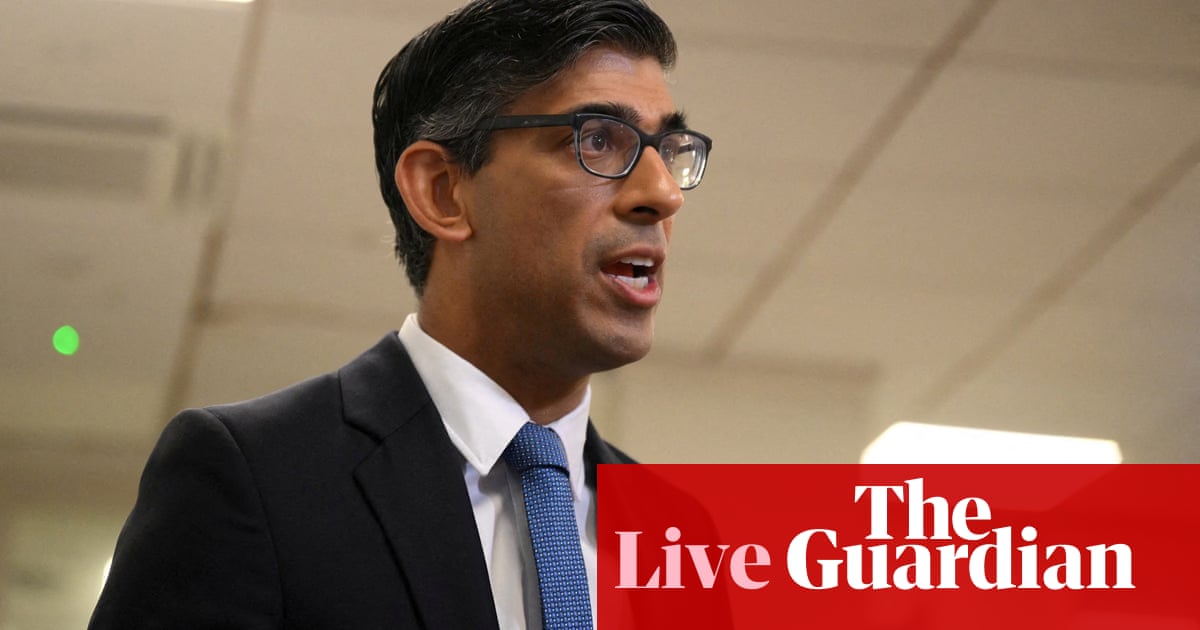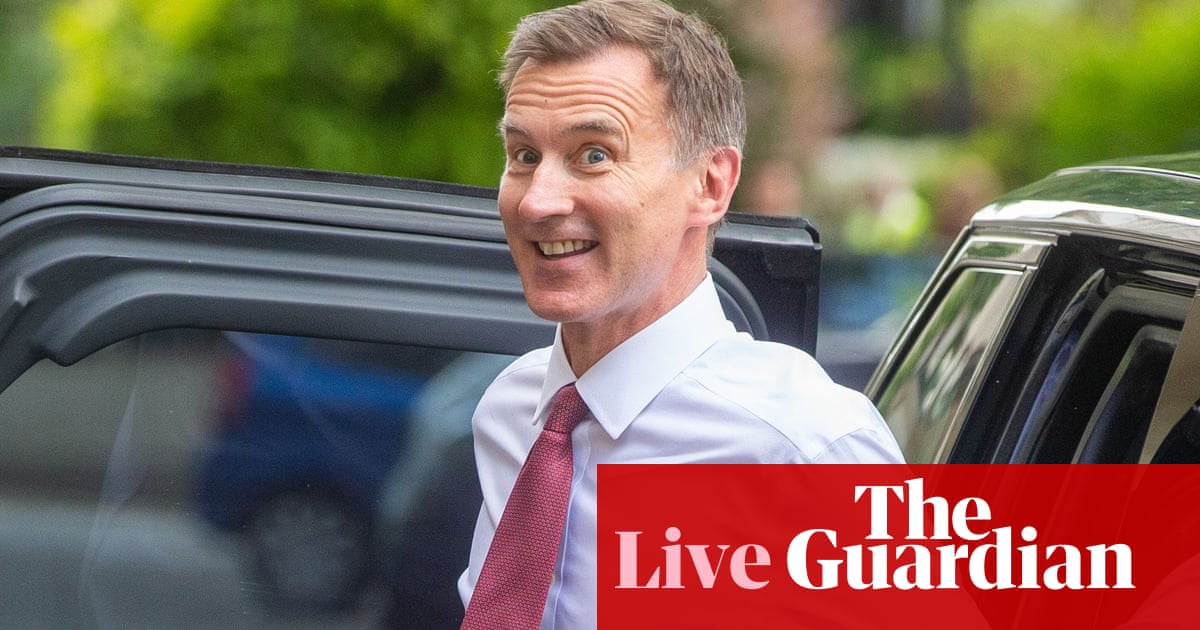
Hunt says quarantining people sooner "might have avoided" the first lockdown
Former health secretary Jeremy Hunt said quarantining people sooner “might have avoided” the first coronavirus lockdown.
He said:
If there was one thing that could have slowed the progress of Covid when it actually arrived, it was to understand the importance of early quarantining to stop the disease spreading, and to understand there are types of pandemic where it is worth putting a massive amount of effort into slowing the spread.
One of the very first [uestions] we should have been asking ourselves is: ‘Is this one of those pandemics that you can actually slow and save lives early on or not?’ And I don’t think we had asked those questions.
The chancellor added that lockdown in the UK didn’t happen until March 2020, adding:
In that period, transmission had increased to about 5,000 a day, and then it was inevitable that you were going to have to use a lockdown. Had we got on the case much earlier with that approach, we might have avoided that.
Summary of the day
From the “mortgage catastrophe” to Jeremy Hunt’s revelations from the government’s pandemic preparedness, there’s been plenty going on in Westminster. Here are the key points:
Polling suggested that most people wrongly think Rishi Sunak’s pledge to halve inflation would either mean prices going down (32%) or staying the same (31%). Only 23% said that this still meant prices would go up. Later in the day, Downing Street claimed the government is still on course to meet its target of halving inflation by the end of the year.
At the Ukraine recovery conference this morning Sunak gave a speech saying “Russia must pay for the destruction that they’ve inflicted”.
Sir Jeffrey Donaldson, the DUP leader, wrote to Sunak urging him to scrap controversial legislation to address the legacy of Northern Ireland’s Troubles. Later in the day, Ireland said it would consider taking legal action against the UK if parliament passes the Northern Ireland Troubles (legacy and reconciliation) bill.
In PMQs, Keir Starmer said the cost of the Tory mortgage penalty is an extra £2,900 a year. Sunak replied that interest rates are at similar levels in Canada and the US and Australia and New Zealand, adding that the government has a plan to reduce inflation. The Guardian’s political correspondent, Andrew Sparrow, opined that Starmer won in the exchange, noting that he was “on very strong ground today because he devoted all his questions to what he called the Tory ‘mortgage catastrophe’”.
Jeremy Hunt appeared before the Covid-19 inquiry, where he dropped several bombshells, including that quarantining people sooner “might have avoided” the first coronavirus lockdown, the UK did not sufficiently learn from the experiences of Asian nations which had dealt with virus outbreaks, and that pandemic preparation exercises had “too narrow a focus”, only considered mitigation rather than prevention, and did not “ask the right questions”.
Mark Walport, David Cameron’s chief scientific adviser who also appeared before the Covid-19 inquiry, warned him in 2013 that the UK’s assessment of risks, including from pandemics, was not being used properly to prevent and mitigate dangers and was being kept too secret.
Labour insisted it still wants to abolish the House of Lords despite planning to swell its size with new peers in order to push through policy if it forms a government.
Suella Braverman rejected calls to move responsibility for the Windrush compensation scheme from the Home Office, with the home secretary saying it would cause “delay and needless bureaucracy”.
More than 1m households across Britain are expected to lose at least 20% of their disposable incomes thanks to the surge in mortgage costs expected before the next election.
Downing Street declined to say whether Shaun Bailey, the former London mayoral candidate for the Conservatives, should take up the peerage given to him in Boris Johnson’s resignation honours after a video emerged of him taking part in a mid-lockdown Christmas party.
Thanks for following today. Andrew Sparrow will be back tomorrow morning to update you on all the political news of the day.
Senior MPs have backed calls for the Foreign Office to do more to help a British citizen jailed for 25 years in Russia for opposing its invasion of Ukraine.
PA reports:
British-Russian dissident Vladimir Kara-Murza was sentenced to 25 years in prison in April after he was convicted of high treason by a Moscow court.
Kara-Murza has already survived two poisoning attempts by Russian agents, and has developed a medical condition which has deteriorated during his imprisonment to the point where he has lost feeling in his feet and one of his arms.
Evgenia Kara-Murza, his wife, now fears that he will die if he is not released from prison and has called for more action from the British government.
Her calls have received cross-party support from MPs, including members of the foreign affairs committee Sir Chris Bryant of Labour and the Conservatives Bob Seely and Alicia Kearns, the committee’s chair.
Ministers may be bringing in political “super-spads” through the backdoor by putting them on the boards of Whitehall departments, a leading committee of MPs has found, as it called for an overhaul of appointment rules, writes Rowena Mason, the Guardian’s Whitehall editor.
The public administration and constitutional affairs committee, led by William Wragg, the Conservative MP, called for new guidance to prevent “personal and political” friends of ministers being installed as non-executive directors of government departments.
It launched its inquiry into civil service boards a year after Matt Hancock was found to have appointed Gina Coladangelo, an unpaid adviser, to the board of the Department of Health and later started an affair with her. The committee said it was “difficult not to question her independence in this role”.
The Guardian’s political correspondent, Kiran Stacey, has the full report on Labour’s plan to appoint dozens of peers to the House of Lords if it wins the next election, despite promising to abolish the upper chamber altogether.
Angela Smith, Labour’s leader in the Lords, said Labour’s priority would be to get legislation through parliament if it won the next election, even if that meant increasing the size of an institution it had promised to scrap.
The party has come under fire from some, including the Scottish National party, who have accused it of hypocrisy, given the Labour leader, Keir Starmer, has previously warned about peerages being handed to “lackeys and donors”.
Smith told Times Radio on Wednesday:
There are 90 more Conservatives than Labour [members]. The priority for Keir will be ensuring he gets the Labour programme through.
[Starmer] is looking for people who are interested in doing a job of work, or from a particular area of expertise. When we see appointments from Keir, that is the kind of criteria he will be using.
Speaking to the Covid-19 inquiry, former health secretary Jeremy Hunt said the legacy of the 2008 financial crisis made it impossible to boost NHS funding sooner to better prepare for the pandemic.
The Chancellor admitted feeling “concerned” about the “fragility” of the NHS and Social Care systems after Exercise Cygnus in 2016 and announced an increase in funding in June 2018.
Asked whether this funding announcement was too close to the pandemic to address problems in the NHS, he said:
When I arrived NHS budget was £101 billion; when I left it was £124 billion. That was negotiation for an additional £33 billion.
As a country, we had very fragile finances in 2010 following the global financial crisis, and we had to do some work in order to get ourselves in a position where we could afford the big increase that I negotiated in 2018.
I don’t think it would have been possible to negotiated that increase any earlier because I don’t think the funding existed to do so.
The’s some reaction to the Institute for Fiscal Studies report, which warns that interest rate rises could mean that 1.4 million mortgage holders lose at least a fifth of their disposable income.
Speaking in parliament, Jeremy Hunt, the chancellor, said:
We will not hesitate in our resolve to support the Bank of England as it seeks to strangle the inflation in the economy – and the best policy is to stick to our plan to halve it.
But I also want to make sure we do everything possible to help families paying higher mortgage rates in ways that do not themselves feed inflation.
So later this week I will be meeting the principal mortgage lenders to ask what help they can give to people struggling to pay for more expensive mortgages and what flexibilities might be possible for families in arrears.
Tom Wernham, a research economist at IFS and an author of the report, said:
Many families bought homes – often with sizeable mortgages – when interest rates were very low. As people’s fixed-term offers come to an end, they are going to be exposed to much higher interest rates.
For many, the increase in monthly repayments is going to come as a serious shock – on average it will be equivalent to seeing their disposable income fall by around 8.3%.
And for 1.4 million mortgage holders – half of whom are under 40 – mortgage payments are set to rise by an eye-watering 20% of disposable income or more.
The shadow chief secretary to the Treasury, Pat McFadden, said:
With inflation staying high and these new warnings that the Tory mortgage penalty will continue to painfully squeeze family finances, it’s clear this government can’t fix these problems because they are the problem.
Instead of squabbling over peerages and parties and ruling out any action on mortgages, the Tories should be taking responsibility and acting now.
Hunt says quarantining people sooner "might have avoided" the first lockdown
Former health secretary Jeremy Hunt said quarantining people sooner “might have avoided” the first coronavirus lockdown.
He said:
If there was one thing that could have slowed the progress of Covid when it actually arrived, it was to understand the importance of early quarantining to stop the disease spreading, and to understand there are types of pandemic where it is worth putting a massive amount of effort into slowing the spread.
One of the very first [uestions] we should have been asking ourselves is: ‘Is this one of those pandemics that you can actually slow and save lives early on or not?’ And I don’t think we had asked those questions.
The chancellor added that lockdown in the UK didn’t happen until March 2020, adding:
In that period, transmission had increased to about 5,000 a day, and then it was inevitable that you were going to have to use a lockdown. Had we got on the case much earlier with that approach, we might have avoided that.
The government should have looked to Asian nations to deal with the pandemic
The UK did not sufficiently learn from the experiences of Asian nations which had dealt with virus outbreaks, the chancellor, Jeremy Hunt, told the Covid-19 inquiry.
Hunt said:
I think there was a groupthink that we knew this stuff best and there was a sense, with perhaps the exception of the United States, that there wasn’t an enormous amount we could learn from other countries.
And certainly, this is with the benefit of hindsight, I don’t think people were really registering particularly Korea as a place we could learn from. I think it is very notable that Korea did not have a lockdown in the first year of the pandemic. They avoided a lockdown at all.
And what I think is interesting is that the reason they had that superb response — in the second half of the pandemic, quite a lot of east Asian countries didn’t do very well because they didn’t get their vaccines out as quickly as we did here — but in that first year I don’t think there was any doubt that places like Taiwan and Korea did incredibly well.
The government did not ask "the right questions" in pandemic preparation
Speaking at the Covid-19 public inquiry, Jeremy Hunt suggested the government had “too narrow a focus” when preparing for a pandemic as part of Exercise Cygnus in 2016.
Speaking about the exercise, Hunt, who was health secretary between 2012 and 2018, told the inquiry’s lead counsel, Hugo Keith KC:
We didn’t ask the other question which was: what can we do to stop it getting to that point where 200-400,000 people have died?
I don’t think we were asking the right questions. What we should have done is thought much more widely about the question. I think that operation had a very narrow focus, a too narrow focus.
He added that there was not “nearly enough thought” put into preparing Britain for a pandemic not based on flu.
He said:
There was another assumption that we were very good at dealing with pandemics. We all thought it.
By the way, it wasn’t just us. Johns Hopkins University in America said that the UK was the second-best prepared country in the world in the global health security index in 2019.
They had subcategories and one of their subcategories was which countries were best prepared for preventing the spread of a virus and scaling up treatment quickly, and we were top. We weren’t second best, we were top.
And so there was I think a completely wrong assumption and I think the truth is we were very well prepared for pandemic flu because we had put a lot of thinking into it. Exercise Cygnus was a huge thing.
But we hadn’t given nearly enough thought to other types of pandemic that might emerge and that was, with the benefit of hindsight, a wholly mistaken assumption.
The Guardian’s social affairs correspondent, Robert Booth, has the full report on this morning at the Covid-19 public inquiry:
David Cameron’s chief scientific adviser warned him in 2013 that the UK’s assessment of risks, including from pandemics, was not being used properly to prevent and mitigate dangers and was being kept too secret, the inquiry has heard.
Professor Sir Mark Walport, the government’s chief scientific adviser until 2017, wrote to the then PM about his concerns, and told the inquiry that the national risk assessment “was locked in departmental safes most of the time and I felt that that wasn’t the most effective way”.
“The whole point of [a] risk assessment is that you will be able to use it to see if you can stop something happening in the first place,” he said. “If it is going to happen – to mitigate your numbers, reduce its effects.”
Walport, a member of the prime minister’s council for science and technology until 2020, backed calls from Oliver Letwin, the former Cabinet Office minister, for the creation of a new post of minister for resilience.
Labour has insisted it still wants to abolish the House of Lords despite planning to swell its size with new peers in order to push through policy if it forms a government.
PA reports:
Keir Starmer’s spokesman said he was standing by the pledge to get rid of the upper house in the first term of a Labour administration, but said there could be “interim reforms”.
Under the current makeup, Labour would need 90 more peers to surpass the Tories’ 263 members and become the largest party in the upper house.
The party conceded that it may take more than one term to shift the balance but said it still wants to replace the “indefensible” Lords with a new elected chamber in a first term.
Starmer’s spokesman said:
Every government when they first come into power do not have a majority within the House of Lords because of the nature of the appointments process.
And every government as a matter of custom and practice looks to make appointments to the House of Lords but it’s not something that’s done in one fell swoop, it’s something that takes time and often takes more than a term in government for that to happen.
That reform of the House of Lords will be in the first term of a Labour government.
He said new Labour peers would be expected to back abolition, with the full details of the policy to be set out ahead of the next general election.
There’s more from the Covid-19 inquiry today as Jeremy Hunt makes his appearance.
The chancellor said that Exercise Cygnus, which was designed to assess the UK’s preparedness and response to an influenza pandemic, should have focused more on prevention, rather than assuming that “you pretty much couldn’t stop it”.
Hunt, who was health secretary between 2012 and 2018, said the cross-government exercise in October 2016 was not to examine the UK’s preparedness but to “establish how well the UK would cope in a situation in which pandemic influenza had already taken hold”.
He told the inquiry’s lead counsel, Hugo Keith KC:
I know you may well want to talk about the issue of groupthink, but I think this was the first example.
Looking back with the benefit of hindsight – this was not what I thought at the time and I, with retrospect of course – I wish I had challenged at the time.
But there were no questions asked at any stage as to how do we stop it getting to the stage of 200-400,000 fatalities.
It was an assumption that if there was pandemic flu, it would spread, using layman’s terms ‘like wildfire’, and you pretty much couldn’t stop it.
Suella Braverman has rejected calls to move responsibility for the Windrush compensation scheme from the Home Office, saying it would cause “delay and needless bureaucracy”.
PA reports:
The scheme, set up in the wake of a scandal in which many British citizens were wrongly detained or deported, has been criticised, while the process of handling claims and offering payouts has been branded slow and inefficient.
But the home secretary said changes had been made to simplify the scheme for users, and maintained it should be kept under the Home Office remit.
In an interview with ITV News as Britain prepares to mark the Windrush 75th anniversary, she said:
It’s right that the Home Office maintain ownership over the scheme because to do otherwise would cause delay and needless bureaucracy.
Campaigners and a lawyer who has helped claimants over the years have argued that people do not have faith in the Home Office, and said it is inappropriate to have the “perpetrators” of the scandal running the compensation scheme.
Meanwhile, Age UK has said the scheme is letting down older people with “increasing numbers dying before ever receiving the compensation they are due”.
The government has accused peers of trying to delay strike reforms that unions fear will make it easier to sack workers.
The House of Lords had made a series of amendments to the strikes (minimum service levels) bill aimed at protecting workers and trade unions, requiring the government to consult further and conduct an impact assessment on the changes.
But today, the House of Commons overturned the amendments after pleas from the government frontbench to allow the bill to become law.
The bill would allow ministers to impose minimum levels of service during industrial action by ambulance staff, firefighters, railway workers and those in other sectors deemed essential.
The Trades Union Congress (TUC) has called for an “urgent rethink” by ministers and warned that the bill, if not amended, will mean that workers who lawfully vote to strike could be forced to attend work or be sacked if they do not comply.
Peers have been trying to amend the bill to ensure workers cannot be sacked if they fail to comply with a work notice on strike days.
But MPs rejected the Lords amendment aimed at ensuring this protection 277 to 209, majority 68.
Peers’ attempts to ensure the government consult further on the bill and conduct an impact assessment were rejected by MPs 283 to 205, majority 78.
A series of amendments from the Lords aimed at ensuring unions are not tasked with ensuring their members obey work notices were also overturned. MPs rejected them 280 to 214, majority 66.
Business minister Kevin Hollinrake said the amendments from peers were not a “meaningful attempt” to reach agreement, adding:
I fear we are having a somewhat repetitive debate which is delaying us from getting on with the important business of minimising disruption to the public during periods of strike action.
Justin Madders, Labour’s shadow business minister, said the Lords were attempting to make the bill “slightly less draconian”, adding that Labour opposes the legislation as a whole.
He said:
This bill is the act of a weak government that has lost the authority and the will to govern for everyone, a government that prefers legislation to negotiation, prefers diversion to resolution and prefers confrontation to consultation.
The proposals are currently in the stage of the parliamentary process known as ping-pong, in which the unelected Lords and the Commons send the bill back and forth until they can agree the final wording.





